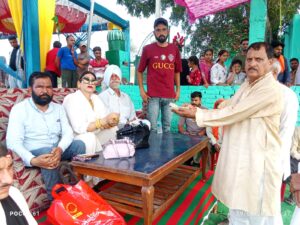Jammu & Kashmir Government Forms Working Group to Review Land-Use Levy Charges
Samba Times Special

Jammu/Srinagar, December 10, 2024: The Housing & Urban Development Department of Jammu & Kashmir has issued Government Order No. 246-JK (HUD) of 2024, constituting a “Working Group of Officers” to review the policy for levy charges of land-use. This comes in response to public and institutional representations received since the implementation of the existing policy under S.O 439 of December 24, 2021, and its subsequent amendments.
Key Objectives of the Working Group
The group has been tasked with evaluating and improving the framework for land-use charges, ensuring they align with public interest and best practices. Their primary duties include:
- Reviewing existing policies, including current rates and classifications, and identifying gaps or overlaps.
- Benchmarking land-use charge structures against comparable organizations to adopt best practices.
- Developing a transparent and simplified methodology for computing land-use charges based on factors like location, purpose, duration, and market conditions.
- Proposing an integrated mechanism for collecting land-use charges and municipal building permission fees, with recommendations for:
Standardized platforms for collections.
Periodic revision protocols.
A unified monitoring system for compliance and timely collection.
Composition of the Working Group
The group will include:
The Commissioner, Srinagar/Jammu Municipal Corporation.
The Vice Chairman, SDA/JDA/LCMA.
The Director, Urban Local Bodies, Jammu/Kashmir.
Chief Town Planners from Jammu/Kashmir.
The Chief Executive Officer, Katra Development Authority.
A representative from the Finance Department.
The Vice Chairman of the JDA will act as the Nodal Officer, coordinating with the Housing & Urban Development Department to submit recommendations within 07 days of the issuance of the order.
This initiative underscores the government’s commitment to making land-use policies more transparent, equitable, and in line with modern urban development needs.





